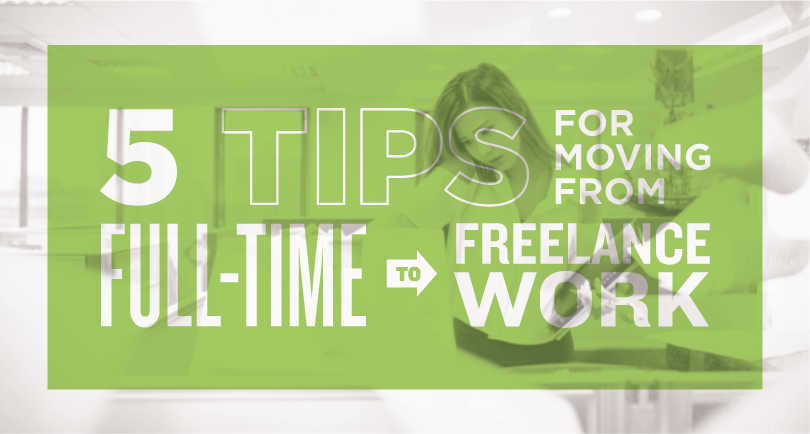Guest post by Tess Pajaron

As remote working and freelancing become increasingly popular employment options, many professionals are lured by the prospect of flexible schedules and decide to become freelancers themselves. That type of freedom is simply in high demand as the boundary between work and life gets blurred and mobile technologies keep workers connected 24/7.
If you’re considering becoming a freelancer in your sector, here are 5 tips to help you ensure a successful freelancing career launch.
1. Research your market
Before you decide to leave your job for the uncertainties of a freelancer’s lifestyle, make sure to conduct a detailed research of the market. You need to know all kinds of things before making your move – how much to charge for projects, where to find clients, or how many projects per month to take on in order to reach your financial goals.
When planning your freelancing schedule, include all the time needed to keep in touch with potential clients and negotiate new deals. When it comes to pricing, you simply need to know how much others charge for their services – and then be strategic about assessing your qualifications.
2. Do your homework in finance

Freelancing means that you’re the one who takes care of your finances. That’s why you need to acquire key knowledge about how businesses work and which strategies can bring you serious benefits – for instance, to consider incorporation or not.
If you don’t want to delve into tax matters, just hire an accountant – they’ll help you find suitable tax dedication opportunities and take care of your bookkeeping. The web is full of platforms where you can find and compare the services of independent accountants, so just have a look and pick one that has good references.
3. Build your personal brand
Freelancers rely on their reputation to find work. That’s why you need to become serious about your personal brand – you’re not a full-time corporate worker anymore and your success will depend on word of mouth recommendations. How you show yourself to the world is key to making it in freelance.
Fortunately, the web is full of opportunities for growing your personal brand. Create social media profiles and use them to engage with the online community in your niche. Choose only networks which are directly relevant to what you’re doing. Also, consider running a blog – it will give you a competitive edge by showcasing your expertise, positioning you as a thought leader in your sector and making you easy to find.
4. Mind the timing

Transitioning from full-time to freelancing isn’t a small change and needs to happen at a right moment in your career. Your market research should indicate when your potential clients are likely to hire someone like you.
Consider your present full-time job as well – are you working on a large project which can score you an endorsement from your employer? If so, you might want to reschedule your transition. When moving to freelance, make sure that you’ve got enough money saved up too – you’re bound to experience some setbacks during the first few months of your operation as a freelance worker.
5. Keep networking
Networking is the best method for meeting people who can potentially connect you to new opportunities and clients. Attend relevant meetups, professional networking events and industry conferences to meet people who think like you.
This way you’ll also get to know your competitors which will help you keep up with industry standards and get new referrals. If one day you have too much on your plate, you’ll be able to easily delegate some tasks to other freelancers, rendering the freelancing community in your sector even stronger.
Transitioning from full-time to freelancing isn’t a piece of cake, but follow these tips and you’re bound to become a successful and fulfilled freelancer in no time!

With a background in business administration and management, Tess Pajaron currently works at Open Colleges, Australia’s leading online educator. She likes to cover stories in careers and marketing.






